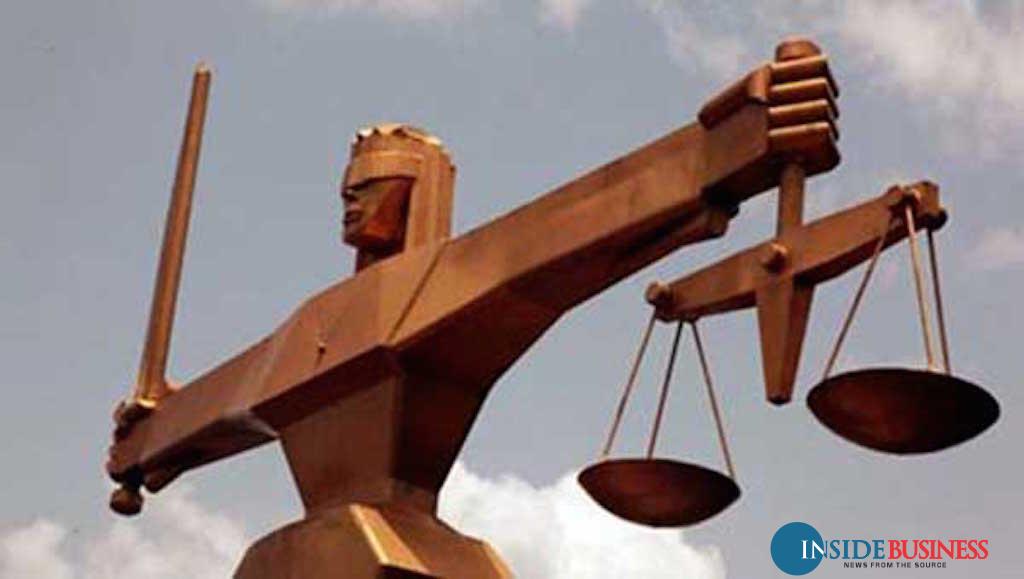Court Dismisses Suit To Sack NDDC’s Interim Management Committee
Owing to lack of jurisdiction, the Federal High Court in Abuja, Monday, has struck out the suit that sought to sack the Interim Management Committee (IMC), that was appointed to pilot affairs of the Niger-Delta Development Commission, (NDDC).
Justice Inyang Ekwo in a ruling on the suit by four Plaintiffs- Akharame Izedome Lucky, Edward Brisibe, Youths Arise for Undiluted Leadership and Development Initiative, and Riverrun Development Initiative said the Plaintiffs were bereft of the requisite locus-standi to institute the action before the court.
Justice Ekwo on the suit marked: FHC/ABJ/CS/690/2020, which had the Attorney General of the Federation (AGF), the Minister of Niger Delta Affairs, NDDC, Prof. Kemebradikumo Pondei, Cairo Ojougboh, Caroline Nagbo and Cecilia Bukola Akintomide, as Defendants, held that the two Non-Governmental Organizations that were among the Plaintiffs, lacked the power, by virtue of their registration status, to file a suit to challenge the action of a government agency
He equally held that the two other natural persons behind the suit are not within the category of people that are described as stakeholders in Section 2(1)(b) of the NDDC Act.
The court stressed that only such stakeholders are statutorily imbued with the locus standi to query the actions and decisions taken in relation to the management of the NDDC.
While dismissing the suit, the Judge held that “I do not see any lacuna in the NDDC Act that would enable any person not mentioned in Section 2(1)(b) thereof to claim to be acting in the interest of either any person mentioned in the provision or not so mentioned.
“In addition to this, I do not see the status given the persons in Section 2(1)(b) of the NDDC Act is such that can be delegated to any other person or hijacked by any other person.”
“Let me put it more specifically for the purpose of clarity. It is my opinion that the effect of the provisions of S. 2(1)(b) of the NDDC Act is that there can be no action by proxy for them. They are the mentioned stakeholders of the law.
“Therefore, if the persons mentioned in Section 2(1)(b) of the NDDC Act refuse, neglect or fail to act where there is an allegation of infractions of the provisions of the Act, it means they do not consider the alleged act as an infraction.
“If there is any breach or infraction of the provisions of the NDDC Act, it is the stakeholders or any of them specifically mentioned in Section 2(1) thereof that is clothed with the locus standi to take an action.
“To give effect to the intention of the legislature on locus standi of the stakeholders mentioned in S. 2(1)(b) of the NDDC Act, it can be seen that each of them are corporate persons with inherent power to sue and be sued.
“I find that the 1st and 2nd plaintiffs, not being persons mentioned in Section 2(1)(b) of the NDDC Act cannot institute an action in court on any matter concerning or pertaining to the appointment of Managing Director, Executive Directors and members of the Management Board of the NDDC.
“In other words, they lack the locus standi to institute this suit. They should rather hold those who have the locus standi to act but have not done so responsible.

“On the whole, I resolve the issue of locus standi against the plaintiffs and in favour of the 1st defendant and by this resolution, the issue of locus standi respectively raised by the second and third to eighth defendants, is by extension resolved in their favour.
“Now, where a plaintiff has been adjudged to lack locus standi, it does not matter what other issues have been raised for determination. Those issues have been overtaken by event. Lack of locus standi ordinarily means the plaintiff has no legal right or authority to cross the threshold of the court for the purpose of litigation.
“Once the court finds that a plaintiff lacks locus standi, then the court lacks jurisdiction to consider or decide any other issue in the suit and this is the case here
“The consequence of the lack of locus standi is dire and the courts have been unwavering in making pronouncements on it. It is the law that the claims must be struck out and I am bound to follow the law. I, therefore, make an order striking this action for lack of standi of the plaintiffs,” Justice Ekwo further held.



Comments are closed.